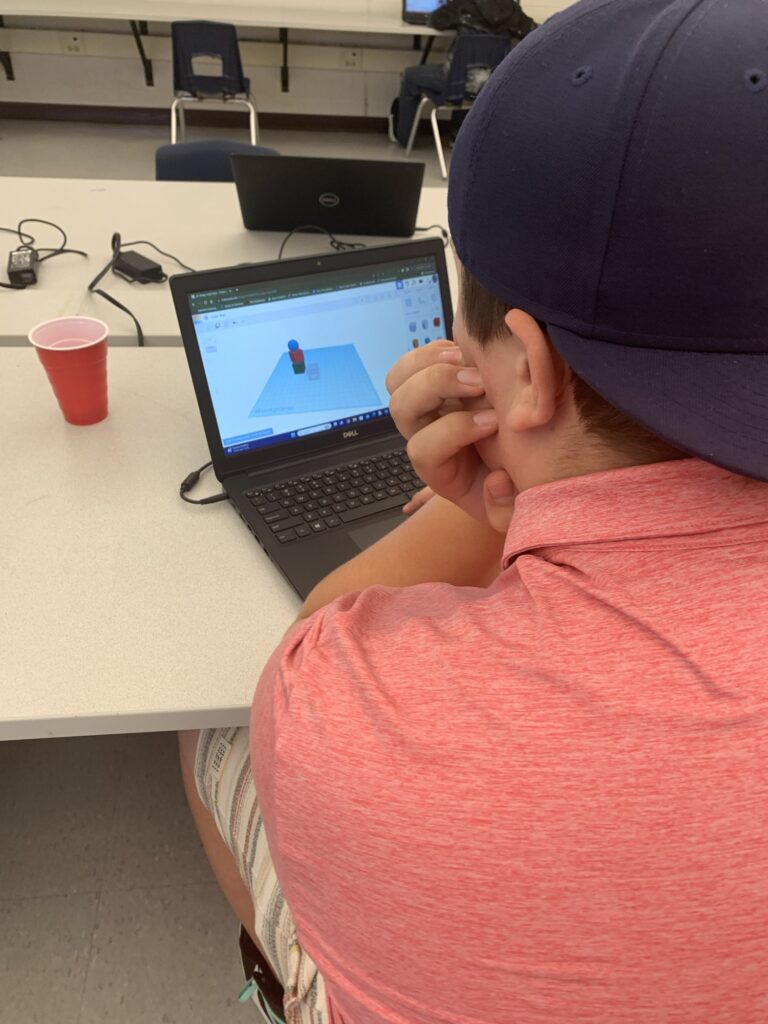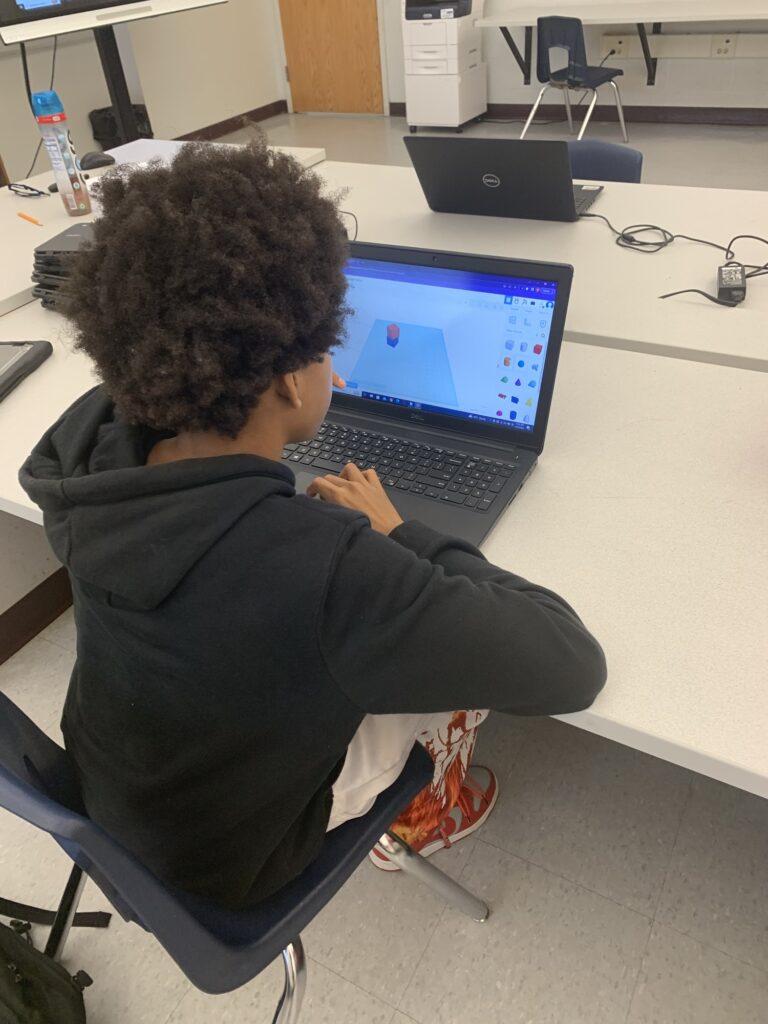By: Jeffries F. Epps, Staff Writer
Students at NL Dillard Middle School in Caswell County, North Carolina, recently participated in a transformative Career Exploration Experience. This innovative program guided students in grades 6-8 to explore career pathways based on their discrete skills rather than mere preferences, providing a clearer vision for their future endeavors.
The journey began with a pre-survey where students listed their hobbies and skills, such as playing sports, musical instruments, or drawing. This initial step aimed to highlight each student’s unique abilities and interests. The program then immersed students in hands-on coding and 3D modeling activities, designed to identify whether they had a computational or visual learning style.

Armed with this self-knowledge, students explored various career pathways that aligned with their learning styles. They delved into the practical aspects of each career, including salary expectations based on the number of years of education and degree levels required. The experience concluded with a post-survey, helping students identify their applicable pathways and assess their likelihood of pursuing them.
Jeffries Epps, CEO of STEMERALD City LLC, emphasized the importance of skill-based career exploration: “Far too often students choose careers based on preferences only to realize their stairway to success is leading in the wrong direction. We covet what we know and we gravitate to the activities in which we perform well. This experience exposes them to pathways that allow them to be rockstars based on skills they already possess.”

Epps further highlighted the potential of students to excel in fields they might not have previously considered: “Many students would be rockstars at coding or IT but they don’t know it because they’ve never been exposed to it. Show me a student who can code and read sheet music and I’ll show you a software engineer waiting to happen.”
Discrete skills—skills with a clear beginning and end—are the foundation of this approach. These skills are accumulated from birth and can be matched to STEM skills to create a clear and personalized pathway for each student. By focusing on what students can already do, the Career Exploration Experience at NL Dillard Middle School aims to inspire confidence and direction, setting students on a course toward fulfilling and successful careers.
Obtaining student interests in Career Pathways can be an invaluable tool for Career and Technical Education (CTE) Directors in several ways:
Alignment with Student Needs and Interests:
- By understanding the specific interests and skills of students, CTE Directors can tailor elective offerings to better match these preferences. This alignment ensures that the courses are relevant and engaging, increasing student enrollment and participation in CTE programs.
Informed Curriculum Development:
- Detailed insights into student interests allow CTE Directors to develop a curriculum that is not only comprehensive but also directly aligned with the future career aspirations of students. This approach can lead to the introduction of new electives that cater to emerging fields and industry demands.
- When students see that their interests are being taken into account, they are more likely to be motivated and invested in their education. Offering electives that resonate with their passions can lead to higher levels of engagement and better educational outcomes.
Resource Allocation:
- Understanding which career pathways are most appealing to students helps CTE Directors allocate resources more effectively. This might involve investing in specific equipment, technology, or teacher training programs that support high-interest areas.
Career Readiness and Workforce Alignment:
- By mapping student interests to career pathways, CTE Directors can ensure that the electives offered are aligned with current and future job market needs. This alignment helps students gain the skills necessary for in-demand careers, improving their employability upon graduation.
Data-Driven Decision Making:
- Collecting and analyzing data on student interests provides a robust foundation for making informed decisions. CTE Directors can use this data to continuously refine and adapt their programs, ensuring they remain relevant and effective.
Building Partnerships:
- When CTE programs are aligned with student interests, it becomes easier to build partnerships with local businesses, industries, and post-secondary institutions. These partnerships can provide additional resources, such as internships, mentorships, and job placements, further enhancing the effectiveness of the CTE programs.
Tailored Career Guidance:
- Understanding student interests enables CTE Directors and career counselors to provide more personalized career guidance. They can help students navigate their educational and career paths more effectively, fostering a sense of direction and purpose.
Boosting Enrollment and Retention:
- Offering electives that directly appeal to student interests can boost enrollment and retention rates in CTE programs. When students find value and relevance in their coursework, they are more likely to stay committed to their educational journey.
In summary, obtaining and leveraging student interests in Career Pathways enables CTE Directors to design and implement more effective and engaging elective courses. This strategic approach ensures that CTE programs are responsive to student needs, aligned with industry demands, and equipped to prepare students for successful careers.